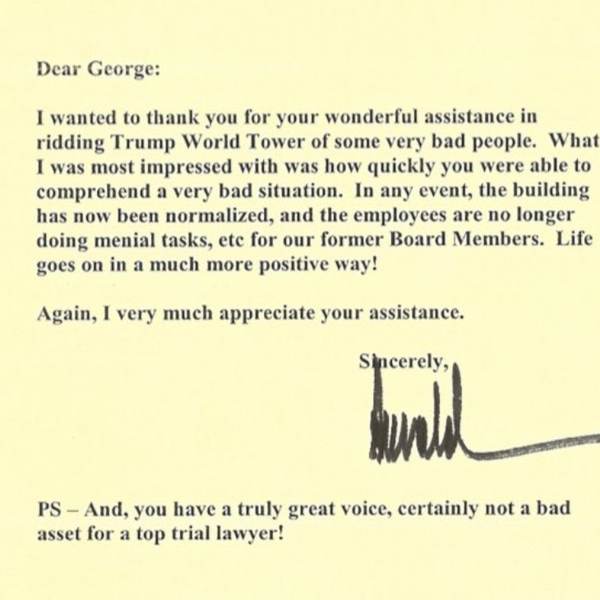Three Federal Courts Finally Reject Trump's Legal Claims -- And His Lies
Donald Trump’s authoritarian strategy is by now all too familiar: lie about the facts on the ground, then use those lies to justify sweeping executive power. The “crisis” is always contrived—engineered to unlock tools that otherwise wouldn’t be available.
The scheme counts on courts’ instinct to defer to executive determinations—doctrines designed for normal government and good-faith actors but wholly inapposite for a president who lies from morning to night.
That’s why it was heartening that, in the past few days, three courts not only rejected Trump’s latest power grabs but also refused to ratify his false versions of events.
In Boston, Judge Allison Burroughs ordered the Department of Education to return more than $2.5 billion to Harvard. The administration had claimed rampant antisemitism justified the clawback. Nobody seriously thinks that’s what drives Trump’s crusade against elite universities, but it took real spine for Burroughs to call it out: “[a] review of the administrative record makes it difficult to conclude anything other than that Defendants used antisemitism as a smokescreen for a targeted, ideologically motivated assault on this country’s premier universities.”
Just so. The administration will argue on appeal that Burroughs was insufficiently deferential, and if reversed it will likely be on that ground. But its position boils down to this: courts must “defer” to a lie. Nothing in the doctrine of executive deference compels such make-believe.
Also this week, the Fifth Circuit blocked Trump’s effort to use the Alien Enemies Act to deport Venezuelan migrants to El Salvador. Trump’s fanciful claim was that supposed gang members amounted to an “invasion or predatory incursion” and that courts were bound to accept this fiction.
The Fifth Circuit—often called the most conservative court in the country—was unmoved: “We conclude that the findings do not support that an invasion or a predatory incursion has occurred. We therefore conclude that petitioners are likely to prove that the AEA was improperly invoked.”
Perhaps the sharpest rebuff came from Judge Charles Breyer, who held that Trump’s deployment of federalized National Guard troops and other military personnel violated the Posse Comitatus Act (PCA). That statute enshrines a bedrock democratic principle: the military may not be used for domestic law enforcement. When Trump stormed into California as part of his immigration crackdown, Governor Gavin Newsom sued, alleging a violation.
At a brief bench trial last month, the administration claimed the troops were merely providing logistical support. But anyone who watched the crackdowns on TV knew better. Breyer rejected the legal arguments and cut to the facts: “the record is replete,” he wrote, “with evidence that the troops on the ground executed domestic laws” in direct violation of the PCA. Worse, “these violations were part of a top-down, systemic effort by Defendants to use military troops to execute various sectors of federal law (the drug laws and immigration laws at least) across hundreds of miles and over the course of several months—and counting.”
As with Burroughs’s “smokescreen” finding, Breyer’s conclusions were both matter-of-fact and devastating. And they are factual determinations higher courts must accept unless clearly erroneous.
Trump has already signaled plans to expand his military campaign to other cities. Breyer’s opinion will loom large in those future cases, giving courts cover to call out PCA violations with less hesitation thanks to the clarity of his reasoning and the force of his findings.
His remedy was measured. He enjoined the administration from using troops for domestic law enforcement but allowed them to remain in California for logistical support—the role the statute actually permits. (That’s the source of Trump’s inane boast that he “won” because the troops can stay.) Breyer’s careful line-drawing leaves the administration two choices: comply with the law or argue the PCA itself is unconstitutional.
These disparate rulings—any of which could yet be undone by the U.S. Supreme Court—reached the just result. More importantly, they insisted on confronting the facts rather than “deferring” to the administration’s fabrications. If courts continue to steer by that star, they will be a real check on Trump’s power grabs. If, instead, they allow him to invent facts, formal legal limits will scarcely matter.
Harry Litman is a former United States Attorney and the executive producer and host of the Talking Feds podcast. He has taught law at UCLA, Berkeley, and Georgetown and served as a deputy assistant attorney general in the Clinton Administration. Please consider subscribing to Talking Feds on Substack.
Reprinted with permission from Substack.










